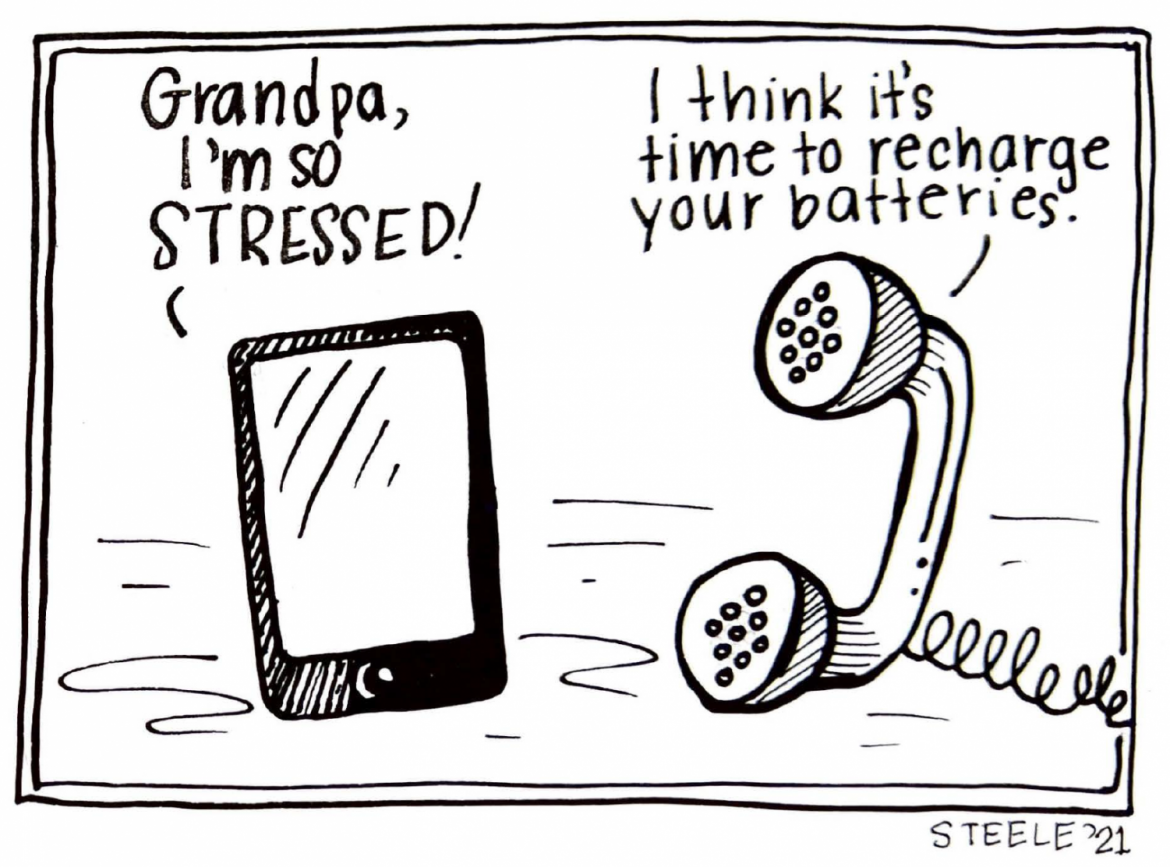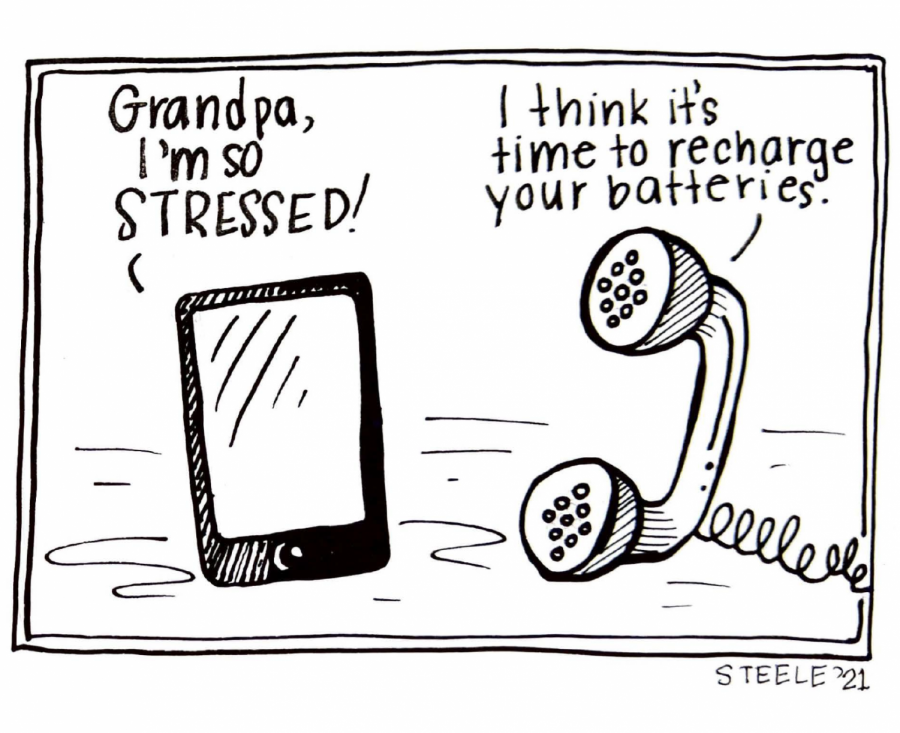I gave up my phone for a week: here’s what happened
I gave up my phone for a week: here’s what happened
By Steele Clevenger
COMIC COURTESY STEELE CLEVENGER, STAFF WRITER AND ART DIRECTOR

“Technology, especially the now ubiquitous iPhone, can have extremely negative effects on teenagers’ mental health.”
Ron Srigley, a professor at both Humber College and Laurentian University, was disappointed when his students failed a midterm test, though he wasn’t surprised. He suspected technology played a role in the failed exam.
“I asked them what they thought had gone wrong. A young woman put up her hand and said: ‘We don’t understand what the books say, sir. We don’t understand the words.’ So I offered them extra credit if they would give me their phones and write about living without them” (MIT Technology Review).
Jean Twenge, author of the book iGen, says “Many parents and educators worry that teen’s … social media and texting, has created a … generation prone to depression … Forty-six percent more 15-to-19-year-olds committed suicide in 2015 than in 2007, and two-and-a-half times more 12-to-14-year-olds killed themselves” (100, 110).
It is clear that technology, especially the now ubiquitous iPhone, can have extremely negative effects on teenagers’ mental health.
Curious as to the effects of how giving up technology would affect my health, I decided to embark on a one week no-phone journey. The rules? No smartphone use for one week. iPads are allowed for homework only. Here’s what I found out:
Day One: It felt a little weird not checking my phone for texts in the morning, but the first day was not challenging. Most of the school day was spent on my iPad, so I didn’t feel like I was missing anything.
Day Two: Another comfortable day without my phone. Communication is tricky, though. I had an appointment today, and when my mom didn’t show up on time, I started to panic. However, my mom picked me up, and I was on time for my appointment.
Day Three: Ok, I cheated a little bit today: I used my iPad for something other than homework. There are so many times during the day I feel like looking up the answers to life’s mysteries. “Did Betty White go to jail?” was a question I answered using my iPad.
Day Four: Today was a work day, meaning I had no time to use technology. I have begun to notice how much sleep I am getting now; 9:30 pm was my bedtime today, as opposed to my usual 11:30 pm.
Day Five: Ah, Saturday. I went to the Farmer’s Market with my dad. Again, there was no time to stare at a screen, and I felt like I had so much more time to talk to my family.
Day Six: I spent most of my day cooking and relaxing. My head was clear and my energy was high. I finished my second book this week, and took a walk with my mom.
Day Seven: Over the course of this challenge, I have realized that I spend so much time on technology that I forget how much I have been given. I drew more, read more, and slept more, making me feel healthier and more fulfilled.
My friend, and fellow reporter, Jayla Lowery, who took part in this week-long challenge with me, also found herself with lots of empty time.
“I worked out, I went for a walk, I went for a bike ride; I did a lot of stuff I usually wouldn’t do [if I’d had my phone],” said Lowery. “I had fewer migraines [and] I felt like I could get a lot more work done.”
Overall, we both agreed we would take part in this challenge again. Though communication with friends and family was different, everything could be coordinated ahead of time, and neither of us felt like we were missing anything when we put our phones away.
If iPhones get in the way of reaching our potentials, do iPads have similar disadvantages?
In 2014, Jesuit introduced iPads to students.
“We try to adapt to the evolving ways kids use technology,” said Principal Paul Hogan. “When cellphones began to proliferate, [administrators] said, ‘You can’t just have them out at any time.”
Hogan said that although iPads can be distracting for some students, he says giving students access to information and connection with the school and their peers outweighs the negative effects of a screen.
Said Hogan, “Some people argue an iPad is just a glorified phone. I think there’s more use to it.”
So, how about a “No iPad Day?”
Said Hogan, “I think it’s a great idea, [however] we would need to have plenty of notice.”




